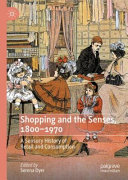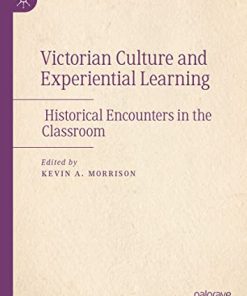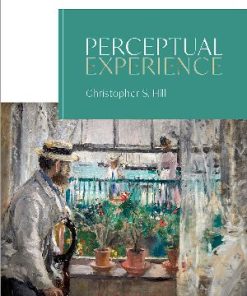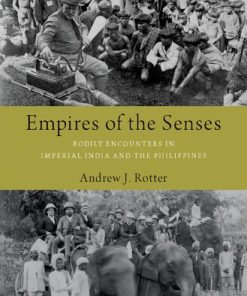(EBook PDF) Perceptual Learning The Flexibility of the Senses 1st edition by Kevin Connolly 0190662913 9780190662912 full chapters
$50.00 Original price was: $50.00.$25.00Current price is: $25.00.
Perceptual Learning: The Flexibility of the Senses 1st edition by Kevin Connolly – Ebook PDF Instant Download/DeliveryISBN: 0190662913, 9780190662912
Full dowload Perceptual Learning: The Flexibility of the Senses 1st edition after payment.
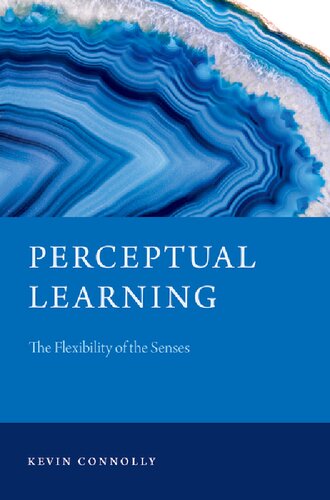
Product details:
ISBN-10 : 0190662913
ISBN-13 : 9780190662912
Author: Kevin Connolly
Experts from wine tasters to radiologists to bird watchers have all undergone perceptual learning-long-term changes in perception that result from practice or experience. Philosophers have been discussing such cases for centuries, from the 14th-century Indian philosopher Vedanta Desika to the 18th-century Scottish philosopher Thomas Reid, and into contemporary times. This book uses recent evidence from psychology and neuroscience to show that perceptual learning is genuinely perceptual, rather than post-perceptual. It also offers a taxonomy for classifying cases in the philosophical literature. In some cases, perceptual learning involves changes in how one attends; in other cases, it involves a learned ability to differentiate two properties, or to perceive two properties as unified. Connolly uses this taxonomy to rethink several domains of perception in terms of perceptual learning, including multisensory perception, color perception, and speech perception. As a whole, the book offers a theory of the function of perceptual learning. Perceptual learning embeds into our quick perceptual systems what would be a slower task were it to be done in a controlled, cognitive manner. A novice wine taster drinking a Cabernet Sauvignon might have to think about its features first and then infer the type of wine, while an expert can identify it immediately. This learned ability to immediately identify the wine enables the expert to think about other things like the vineyard or the vintage of the wine. More generally, perceptual learning serves to free up cognitive resources for other tasks. This book offers a comprehensive empirically-informed account, and explores the nature, scope, and theoretical implications of perceptual learning.
Perceptual Learning: The Flexibility of the Senses 1st Table of contents:
Part I The Nature of Perceptual Learning
1. How to Understand Perceptual Learning
1.1 Introduction
1.2 What Is Perceptual Learning?
1.3 A Taxonomy of Perceptual Learning Cases
1.4 The Offloading View of Perceptual Learning
1.5 Looking Ahead
2. Is Perceptual Learning Genuinely Perceptual?
2.1 Introduction
2.2 Skepticism about Perceptual Learning as Genuinely Perceptual
2.3 Introspective Evidence That Perceptual Learning Is Genuinely Perceptual
2.4 Neuroscientific Evidence That Perceptual Learning Is Genuinely Perceptual
2.5 Behavioral Evidence That Perceptual Learning Is Genuinely Perceptual
2.6 Conclusion
Part II The Scope of Perceptual Learning
3. Learned Attention and the Contents of Perception
3.1 Introduction
3.2 The Phenomenal Contrast Argument
3.3 The Attentional Reply to the Phenomenal Contrast Argument
3.4 The Blind Flailing Model of Perceptual Learning
3.5 A New Attentional Reply to the Phenomenal Contrast Argument
3.6 Learned Attention and the Offloading View
4. Learned Attention II: Sensory Substitution
4.1 Introduction
4.2 Attentional Weighting in Distal Attribution
4.3 Latent Inhibition as a Kind of Learned Attention
4.4 Applying Principles of Attentional Training to Sensory Substitution
4.5 Perceptual Learning and Perceptual Hacking
4.6 An Empirical Test for Determining the Nature of SSD Experience
4.7 Conclusion
5. “Chunking” the World through Multisensory Perception
5.1 Introduction
5.2 The Kind of Conscious Awareness We Have in Multisensory Perception
5.3 Unitization as a Perceptual Learning Mechanism
5.4 Applying Unitization to Multisensory Cases
5.5 Objections and Replies
5.6 Unitization and the Offloading View
5.7 Conclusion
6. Learning to Differentiate Properties: Speech Perception
6.1 Introduction
6.2 The Phenomenal Contrast Argument for Hearing Meanings
6.3 The Argument from Homophones
6.4 The Role of Differentiation in Speech Perception
6.5 Why Perceptual Learning Does Not Support the View That We Hear Meanings
6.6 The Offloading View and Speech Perception
6.7 Conclusion
7. Learning to Differentiate Objects: The Case of Memory Color
7.1 Introduction
7.2 Memory Color and Cognitive Penetration
7.3 A Brief Survey of Memory Color Studies
7.4 Why Memory Color Is Not a Mechanism for Color Constancy
7.5 Memory Color and Perceptual Learning
7.6 Memory Color and the Offloading View
7.7 Conclusion
People also search for Perceptual Learning: The Flexibility of the Senses 1st:
perceptual learning styles include
perceptual learning examples
perceptual learning definition
perceptual learning psychology
perceptual learning styles
You may also like…
Politics & Philosophy - Social Sciences
Shopping and the Senses, 1800-1970 1st Edition Palgrave Macmillan
Religion & Spirituality
Uncategorized
Biology and other natural sciences - Biology
Secret Worlds: The extraordinary senses of animals 1st Edition
Uncategorized
Uncategorized
Politics & Philosophy
Uncategorized
A Breath of Mischief 1st edition by Marcykate Connolly, Yuta Onoda 1728256860 978-1728256863
Politics & Philosophy - Anthropology
Empires of the Senses: Bodily Encounters in Imperial India and the Philippines Andrew J. Rotter




